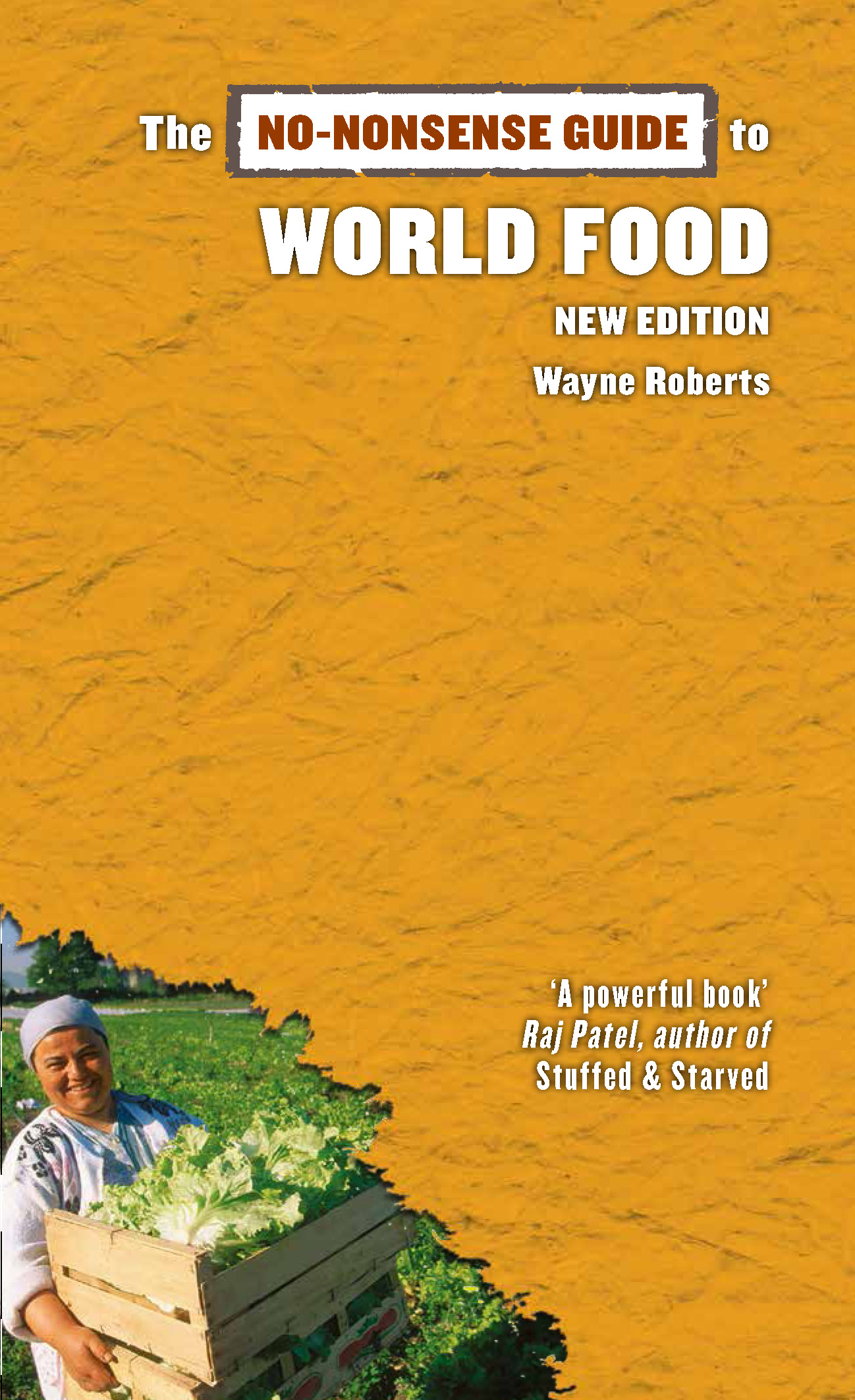Wayne Roberts began the first edition of his No-Nonsense Guide to World Food with an endearingly frank admission. “Like most things in my life,” he wrote, “I stumbled into food activism without knowing what I was getting into.”
He may have stumbled into food activism, but there is no doubt that Dr. Roberts, a social and political historian and winner of many awards for his work on food, landed solidly on his feet.
A regular food columnist for Now Magazine in Toronto, and after years of managing the Toronto Food Policy Council, he is now an internationally respected food policy analyst and one of Canada’s foremost and most upbeat activists, advocates and writers about food and food systems.
His 2008 book, part of the New Internationalist series covering everything from Islam to globalization, world poverty to world health, was a remarkably thorough and concise analysis of the world’s food system.
It detailed the food choices that can help people and communities wrestle control from corporations and governments to create a balanced, just and sustainable system that serves human rather than corporate interests. The book weighed in at just 191 pages and could be read in just a couple of hours, while also serving as a useful reference book with its extensive index.
But much has changed since that book came out five years ago.
This is why the new 2013 edition of the No Nonsense Guide to World Food is so timely and invaluable. In the introduction, Roberts documents a few of what he calls the “food highlights” that could not have been predicted in 2008.
On the positive side, he notes that interest in food and the field known as “food policy” has grown immensely, especially among the youth, fair trade sales have soared and governments, groups and organizations around the world have been establishing food policy councils and setting their own food policies.
On the negative side, he notes that skyrocketing food prices have led to violent protests in about 40 countries, to speculation in food stocks and to “land grabs” of tens of millions of well-watered hectares of fertile farmland in Africa, much of it is for the production of biofuels rather than food. There has also been a corporate assault on African agriculture and food, in the form of the G8’s New Alliance for Nutrition and Food Security.
Roberts examines all of these trends and issues in the new edition, while staying true to the first edition’s concise and razor-sharp analysis of the failings of the unhealthy industrial food system and of creative alternatives that can transform it and produce healthy, diverse foods and farms that not only withstand but can also help us tackle climate change and food needs.
As an author and an activist, Roberts manages the rare feat of delivering very bad news about corporate control of our food without succumbing himself to despair or driving the reader into a deep depression.
The book is fast-paced, straightforward and succinct, every page jam-packed with facts and illuminating figures. Unlike Monty Python’s famous skit about the overly ambitious television show “How to do it” that promised, in just one program, to teach children how to play the flute, split the atom, construct box girder bridges, irrigate the Sahara to make vast new areas cultivatable and rid the world of all known diseases, Roberts actually has performed a small miracle by achieving the incredibly ambitious goal of providing –in a tidy 184 pages — a no nonsense guide to world food.
In just six chapters, he introduces the concept of food systems, provides the history and context for the current industrial food system, shows why a system that produces cheap food exacerbates hunger and environmental degradation, explains the concept of “food sovereignty” to country industrial food, discusses why hunger is still a pressing issue and then what two countries, Brazil and Cuba, have done about it.
Then, in the final chapter, Roberts looks to the future, which he shows can be brighter, with food systems that nourish consumers, communities and farmers.
With his clear and to-the-point prose, Roberts makes even potentially dry and academic analysis of extremely complex world trade issues and neo-liberal economics and how they affect food, highly readable and easy to digest, if not always to stomach.
But he is ultimately an optimistic realist and he’s imbued this important book with wit, profound insights and also some lovely turns of phrase that make it, ultimately, a manifest of hope for food, which he sees as the “many-splendored asset” that it once was and can be again.
Joan Baxter is a journalist, international development researcher and an award-winning author, who has spent nearly three decades working, living and writing in Africa. She is currently working on a new book Seven Grains of Paradise – a culinary journey in Africa about foods and farms on the continent.



